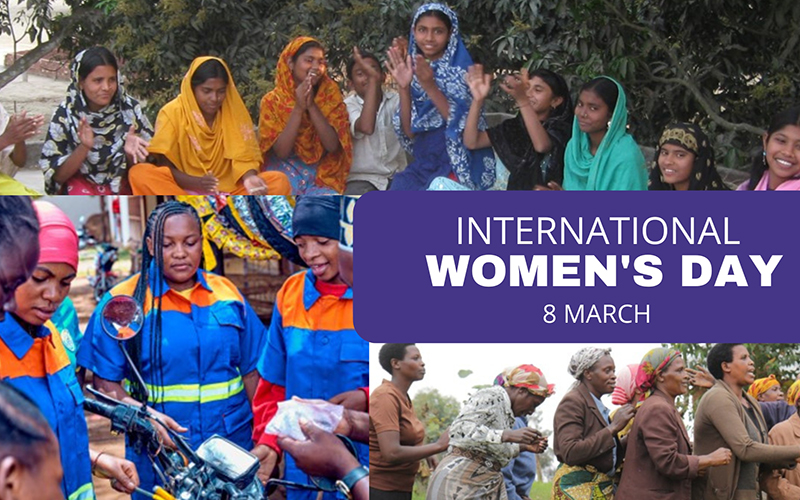
By Dr Jyotsna Jha
Director Skills, Commonwealth of Learning
“For ALL women and girls: Rights. Equality. Empowerment.” is the theme for celebrating International Women’s Day (IWD) on 8 March 2025. This year is significant as it marks the 30th anniversary of the Beijing Declaration and Platform for Action when the United Nations started celebrating the IWD. The story of struggles and achievements towards women’s rights, equality and empowerment has largely been a story of two steps forward, one step back; we make progress in some areas and something else slips back in some part of the globe! New challenges emerge that reflect the same inequalities and similar obstacles, calling for renewed and sustained actions!
While tremendous progress has been made in the last ten years in terms of increased participation of girls at all stages of education, including the tertiary level, girls and women are still lagging behind in key emergent areas. For instance, women’s representation in courses and jobs related to artificial intelligence (AI) remains low. An analysis of data on nearly 1.6 million AI professionals worldwide revealed that “women comprised only 22 per cent of AI talent globally, with even lower representation at senior levels – occupying less than 14 per cent of senior executive roles in AI.”[1] It is not only AI; the gender gap persists in access to digital skills in general, especially in certain parts of the globe, such as Sub-Saharan Africa and the Asia Pacific regions.[2]
What is perhaps even more challenging is the increasing evidence of AI tools themselves being gender biased. Most of us have heard about Amazon’s scrapping of the AI hiring tool, which was biased against women.[3] Scholars have been writing about the ‘feminisation’ of digital space and how this is driving women and marginalised groups out of digital space. For instance, virtual assistants of big tech companies, despite having no body or biology, reinforce prevalent gender biases in their conception and how they have been trained to respond, signifying subordination and submission.[4] These are important aspects of ‘empowerment’ challenges for us to engage with and address in future.
We at the Commonwealth of Learning (COL) work with a mission ‘to help governments, institutions and organisations expand the scale, efficiency and quality of learning by using appropriate open, distance and technology-based approaches in the area of technology-supported learning’ and try to engage with these challenges. For instance, we are currently implementing a project on AI-powered gender-responsive capacity building for teachers in STEM in several countries where a sizable proportion of these teachers are women. We are also collaborating with the University of the South Pacific to develop AI-powered support tools specifically designed for IT support staff, primarily women, who manage online teaching platforms for large student cohorts.
What we need to celebrate is that this has NOT been a story of one step forward, two steps backwards. Despite setbacks, we have moved ahead and need to move further continuously. What has helped us in moving ahead has been our TOGETHERNESS. Togetherness in various forms and multiple ways. Over the years, governments, civil society organisations, and people’s movements have together shown their commitment to the cause of women’s rights and empowerment.
At COL, we want to express our commitment to the cause of women’s rights and empowerment through the means of ‘Together we thrive’, this year’s theme for the Commonwealth Day on 10 March. We are committed to actions for understanding inequalities and empowerment with all their nuances and to act together, striving for a world where everyone has an opportunity to flourish.
To watch the International Women’s Day 2025 Message from Dr Jyotsna Jha, Director: Skills COL and Dr Karen Nyangara, Adviser: Gender COL, click here: https://youtu.be/RdGNAaQIt70
[1] Interface (2024). AI’s Missing Link: The Gender Gap in the Talent Pool. https://www.interface-eu.org/publications/ai-gender-gap#:~:text=Our%20analysis%20of%20data%20on,senior%20executive%20roles%20in%20AI.
[2] Coursera_Global_Skills_Report_2024.pdf
[3] Insight – Amazon scraps secret AI recruiting tool that showed bias against women | Reuters
[4] For instance, see Jennifer Jill Fellows and Lisa Smith (ed). 2022. Gender, sex and tech! An intersectional feminist guide, Women’s Press.


